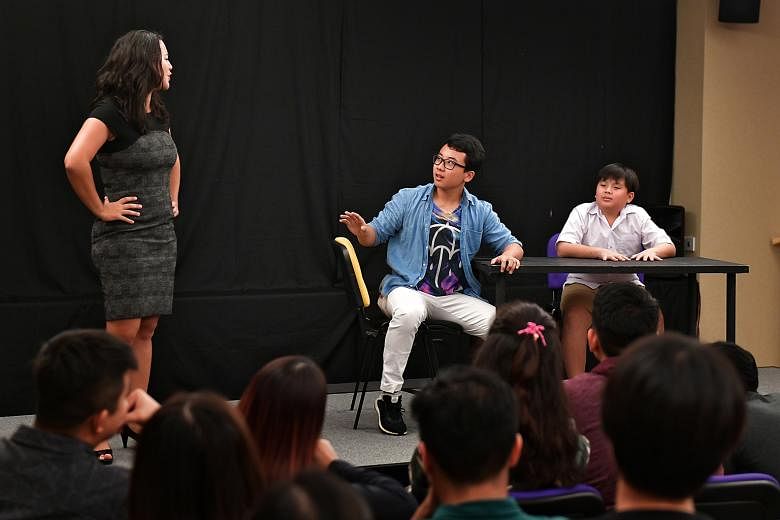Issues such as youth suicide and whether students can cope with failure have hogged headlines recently, as discussions about Singapore's future gain traction.
A community group, 100 Voices, is aiming to collect feedback from stakeholders - such as parents, teachers and students - on how attitudes towards education can be transformed, through a series of monthly public dialogues.
Software developer Dean Yap, 42, who leads 100 Voices, said the group intends to give the Ministry of Education (MOE) its findings at the end of the year, to aid the planning of support programmes.
Set up last October, 100 Voices counts World Toilet Organisation founder Jack Sim, who failed his O and A levels, as a founding member and now has more than 1,300 people in its public Facebook group.
On Feb 25, the group kicked off its process with a play, Don't Kancheong, Kiasu And Kiasi, at the National Volunteer and Philanthropy Centre in Clarke Quay, in collaboration with Buds Theatre Company.
The forum theatre performance presented scenes without a resolution, so audiences could step into the actors' shoes to intervene and transform outcomes.
Four scenes presented various issues with different stakeholders. They depicted an argument between parents over a child's poor results, a teacher who shoulders the blame after a student expresses suicidal thoughts, a principal and MOE director discussing youth suicide and an employer having difficulty finding innovative Singaporean workers.
Buds Theatre's artistic director Claire Devine said that such a method of dialogue fosters a non-judgmental space where audiences can offer resolutions to conflicts.
At one point, a young audience member bravely offered to fill the role of the principal in the second scene, acknowledging the teacher's efforts in helping her students instead pushing parents' blame to her.
At another point, the audience burst into laughter when a student cheekily suggested that parents themselves have tuition so they can help their children with schoolwork, instead of pressuring them to get better grades.
Ms Devine said: "There have been dialogue sessions about the education system but the people who turn up for such dialogue sessions are already vocal, and they only tend to represent a particular demographic of people.
"It's the ones who are not so vocal that you want to try and approach, because that is the larger voice."
Including a free performance at Nanyang Technological University on Feb 23, close to 500 members of the public attended the forum theatre event over four days.
Trainer Eugene Seah, 41, a father of three, said he enjoyed the interactive elements in the play.
"The challenge is to translate that into productive action among the attendees, instead of just simply enjoying it as entertainment," said Mr Seah, whose children are aged between seven and 13.
"The onus is on each participant to transform our mindsets."


